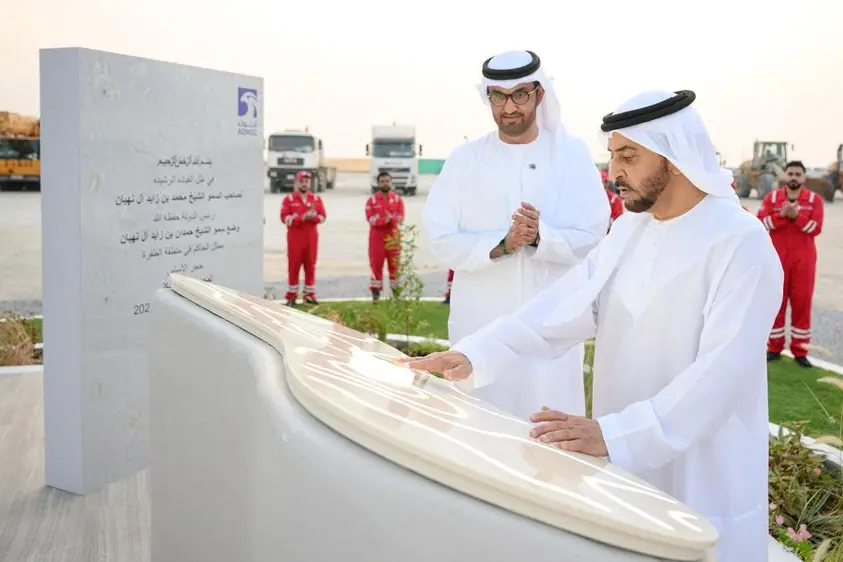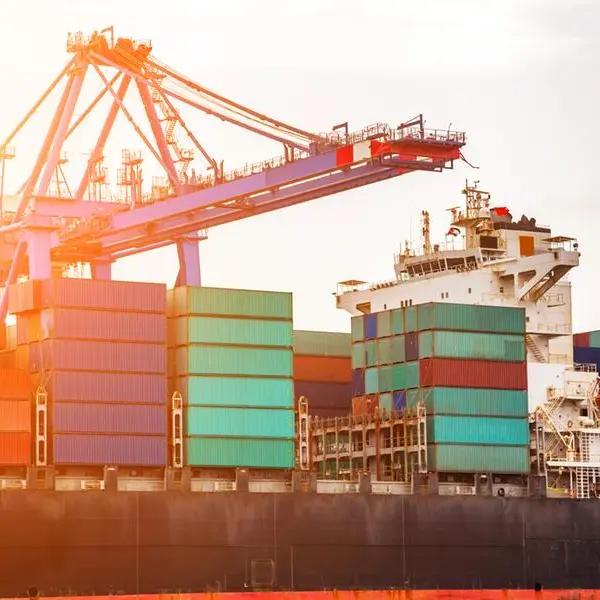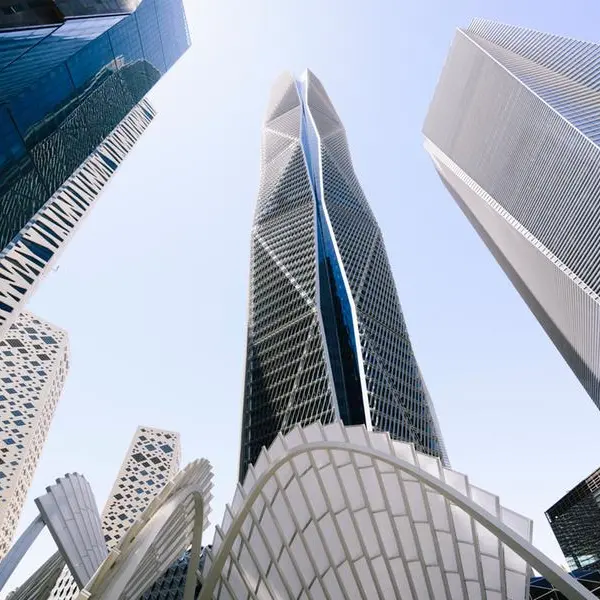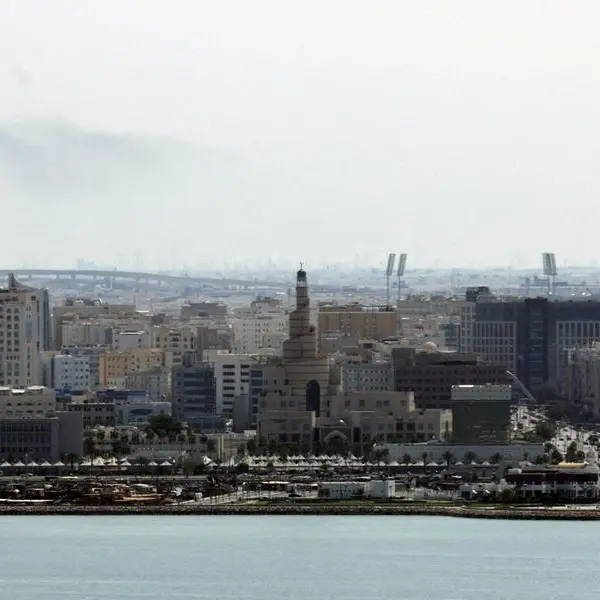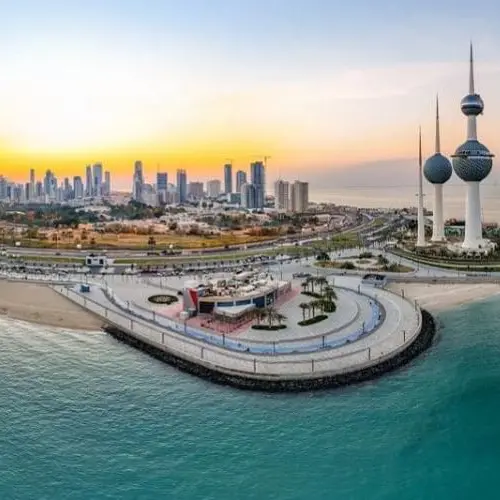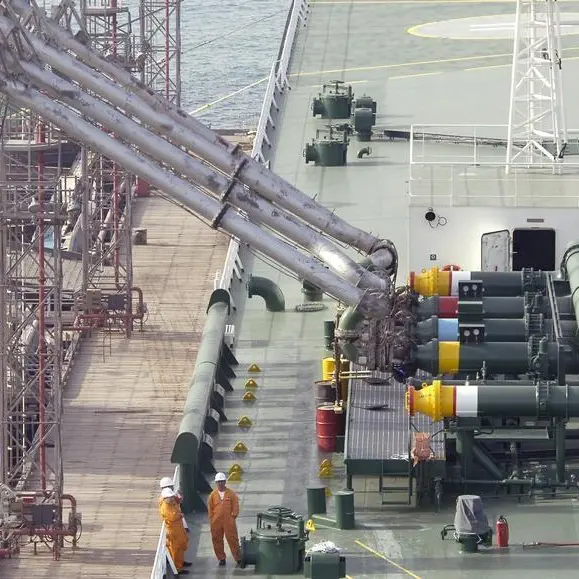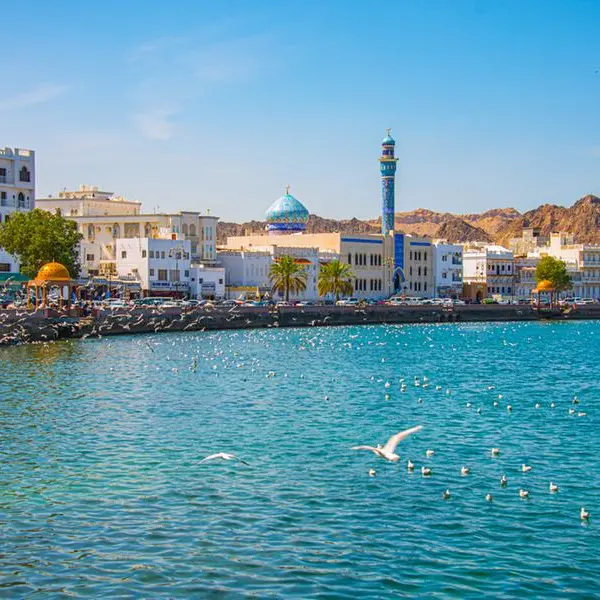PHOTO
ABU DHABI: H.H. Sheikh Hamdan bin Zayed Al Nahyan, Ruler’s Representative in Al Dhafra Region, visited Das Island to lay the cornerstone of a new hospital and residential complex. The infrastructure expansion marks an important milestone in ADNOC’s low-carbon growth strategy as the company accelerates its efforts to deliver the maximum energy safely and sustainably with minimum emissions the world needs.
Sheikh Hamdan bin Zayed, Ruler’s Representative in Al Dhafra Region, said: “I am proud to see the tangible progress ADNOC is making to build a more sustainable future for all. The world needs more and cleaner energy, and the UAE is leading the way. In the Year of Sustainability, ADNOC’s efforts to increase gas capacity and decarbonise its operations will help accelerate the world’s energy transition.”
Sheikh Hamdan was accompanied by Sheikh Yas bin Hamdan bin Zayed Al Nahyan, His Excellency Engineer Awaidha Murshed Al Marar, Chairman of Abu Dhabi Department of Energy, Mansour Ibrahim Al Mansoori, Chairman of Abu Dhabi Department of Health, Ahmed Matar Al Dhaheri, Director of the Ruler's Representative Office in Al Dhafra Region, Dr Shaikha Salem Al Dhaheri, Secretary General of the Environment Agency – Abu Dhabi, Issa Hamad Bushhab, Advisor to His Highness President of the Emirates Red Crescent Authority and His Excellency Nasser Mohammed Al Mansouri, Undersecretary of the Court of the Ruler's Representative Court in Al Dhafra Region.
Upon his arrival at Das Island, His Highness was received by His Excellency Dr Sultan Ahmed Al Jaber, UAE Minister of Industry and Advanced Technology, COP28 President-Designate and ADNOC Managing Director and Group CEO, Tayba Abdul Rahim Al Hashemi, CEO of ADNOC Offshore, Ahmed Mohamed Alebri, CEO of ADNOC Gas, and a number of senior managers and officials of ADNOC.
Sheikh Hamdan began the visit with a tour of Das Island, during which he was briefed on the production facilities, prominent technologies used and key projects currently under development. His Highness also visited the control room, where he was briefed about the role of UAE National employees who manage the gas production plant and heard about ADNOC's comprehensive strategy for gas production and its goal to enable gas self-sufficiency for the UAE.
During the visit, His Highness met with ADNOC employees, reaffirming the commitment of the UAE’s wise Leadership to continue investing in the development of UAE Nationals in order to ensure their active contribution towards the nation’s growth and prosperity. His Highness praised the important role of Emirati women, emphasising the need to continue empowering them across sectors, especially in the energy sector where they excel.
Das Island, located 160km Northwest of Abu Dhabi, is a critical part of the UAE’s infrastructure and central to ADNOC’s ambitious gas growth plans. Natural gas will play an essential role in the energy transition as a lower carbon-intensity fuel, with global gas demand expected to increase over the coming decades. The new residential complex will be a key enabler as ADNOC expands its gas capacity to support UAE gas self-sufficiency, industrial expansion and economic growth, and increased export capacity to meet growing global demand.
The island will also serve as an electricity power hub as ADNOC decarbonises its offshore operations. In 2021, the company announced a AED14 billion deal to build a first-of-its-kind, sub-sea transmission network in the MENA region. The network will connect ADNOC’s offshore operations from Das Island to the onshore power network and has the potential to reduce its offshore carbon footprint by up to 50 per cent. This project is part of ADNOC’s wider strategic programme to invest AED55 billion for landmark decarbonisation projects by 2030.
The Das Island expansion plan will include new residential quarters with plans to increase female accommodation and services. ADNOC plans to become a regional leader in diversity to attract the best UAE talent to future proof its business. As part of ADNOC’s Sustainability Strategy it will double female representation in technical positions to 25 percent by 2030.
